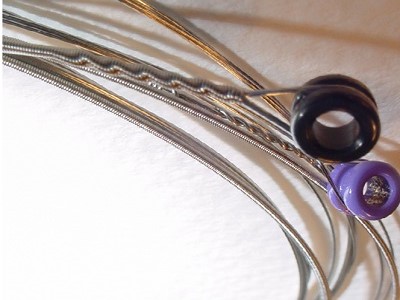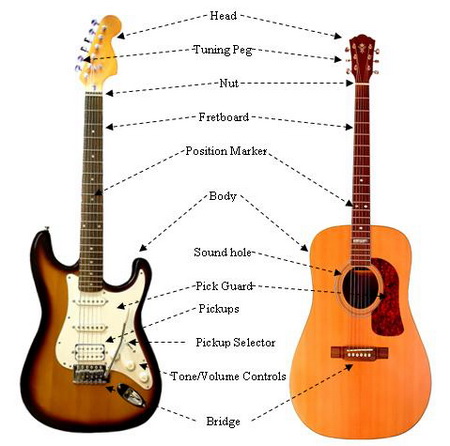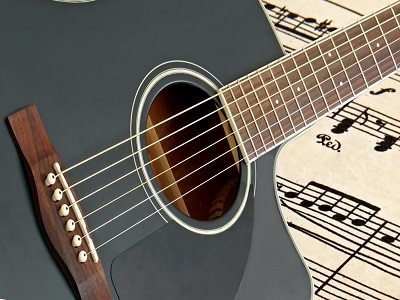The Various Types of Guitar Strings Available
 When you go to a music store in search of strings, you may notice a few things. The first is that strings are sorted by size.
When you go to a music store in search of strings, you may notice a few things. The first is that strings are sorted by size.
In some cases the gauges make sense, in others, they seem to be randomly chosen (many seven string sets). The second is that there are different types of strings. So how do you know which to choose?
In this article, we will talk about the basics of discerning which type of guitar strings are for you.
Steel Strings
The most common type of strings is steel strings. Some are wound in nickel, while others use different metals. Steel strings are most commonly used on electric guitars, in styles ranging from heavy metal to jazz. The lifespan of a set of steel strings all depends on much guitar maintenance work you do.
Wiping your strings off after each playing session to rid them of salts and body oils is a great way to make your set last for an extra month or more. Steel strings are most commonly wound with nickel or other metal for the lower strings, while the higher strings are bare. All have ball ends. These tend to have more twang and resonate much better due to the way the metal carries the note frequency.
Nylon Strings
Perhaps the oldest style of strings is nylon strings. Nylon strings are commonly used with classical guitars. While they can be used with some electric guitars, most will need a modification in order to accommodate these strings. This involves widening the nut and adjusting the saddles. Nylon strings can last years per set.
Unlike steel strings, they do not have ball ends. They tie. This means that you will need a specific bridge to make them work. This is why you will have to modify your guitar to accommodate them. Nylon strings can be combined with steel depending on your guitar.
Silk And Steel Together
A newer kind of string combines silk and steel together. These strings are extremely smooth with very bright tones. They are light on your fingers, so guitarists with gentle touches would benefit from silk and steel combinations. They are a bit expensive, but they tend to last much longer than steel strings for electric guitars.
Coated Strings
Another new type of strings on the market is coated strings. Coated strings last a lot longer than steel strings (roughly twice the life when properly treated). The coating on the strings helps to keep out salts and body oils that are normally transmitted through the fingers. These strings are more expensive, but they are a great investment for the avid player.
The only downside is that coated strings tend to have a different feel than steel or silk and steel combinations. Some guitarists tend to believe that they are sticky. The coating can feel awkward. It is best that you try a set before buying a set, or if you are feeling adventurous, keep a backup set of steel strings just in case.
No matter what strings you choose, remember to wipe them down after each playing session with a dry cloth. Proper care and maintenance for guitar strings extend your string’s life, as well as your wallet’s.
Hands Down The Best Program Ever to Be Created
For the most effective step-by-step guitar method, we highly recommend Gibon’s Learn & Master Guitar course. This award winning DVD program is currently on a 3-day sale and you get to save $100 off the usual price today!
Click here to learn more details and purchase the course before this promotion ends…







Leave A Comment